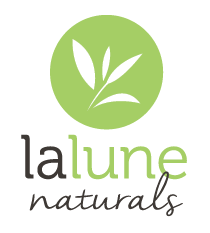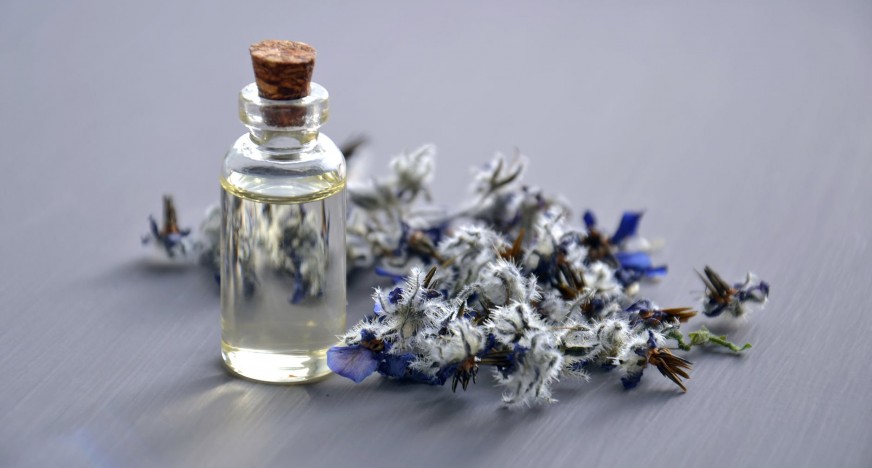If you’ve ever suffered from breakouts of acne or pimples, then you might think that adding extra oil to your skin would be a big mistake. If done carefully, however, it’s one of the best ways of keeping your skin healthy and youthful.
The key is to use only natural essential oils from health-giving herbs and plants, which not only help tone your skin, but also provide gentle medicinal effects to reduce puffiness, calm acne breakouts, speed up healing, and much more.
Using Essential Oils
To use essential oil, make a serum using one part essential oil to five parts of a neutral carrier, such as Fractionated Coconut Oil. Fractionated Coconut Oil readily absorbs into the skin and is soluble with all essential oils. Because Fractionated Coconut Oil is colorless and odorless, it is perfect for blending with essential oils as it preserves and maintains their original fragrance and benefits. You can apply this oil mixture directly to your skin, or mixed with heavy-grained sugar to make an exfoliating scrub.
Important Warning!
Although essential oils are natural and safe, some of them can cause minor irritation when applied to sensitive skin, and in rare cases, they can provoke an allergic reaction. Always test a new oil on a small area of skin, heavily diluted, and avoid those which produce any unwelcome side effects.
Types of Essential Oil
In theory, any herb, flower, or another type of plant can yield an essential oil. However, certain varieties stand out as being particularly effective for skin care. Here are nine you may want to try.
1) Argan Oil
A relative of the olive, argan has been used medicinally in Morocco for thousands of years. Oil pressed from the argan fruits contains the full range of properties: it’s antibacterial, antimicrobial, anti-fungal, and anti-inflammatory. It’s an excellent all-arounder for toning and moisturizing your skin, reducing acne breakouts, and deep-cleansing your pores for a clearer complexion.
2) Hazelnut
Hazelnut oil is packed with nutrients, minerals, and antioxidants to give your skin a healthy boost. It’s especially useful if you have a slightly greasy complexion, as its high tannin and catechin content helps to regulate and balance natural oil production.
3) Lavender
Lavender oil is excellent for cleansing and healing minor wounds, thanks to its anti-inflammatory and antiseptic properties. Use it to treat bee stings and insect bites, as well as superficial cuts and scrapes. It’s also a great way of reducing acne and pimples by removing bacteria from your pores.
4) Tea Tree
Tea tree oil is one of nature’s skincare superheroes, offering a wide range of benefits for your complexion. Perhaps the most important use is as a treatment for acne, which relies on its powerful natural antibacterial agents known as terpenes. However, be 100% sure to dilute tea tree oil before dabbing it onto your skin. Even more than other essential oils, tea tree can cause irritation and swelling if used in high concentrations, so handle with care.
5) Chamomile
Essential oil obtained from chamomile flowers makes a soothing balm for dry and cracked skin, which makes it particularly helpful in treating eczema. You can also use it to reduce any swelling caused by allergic reactions in sensitive skin.
6) Cypress
Cypress oil shrinks swollen blood vessels to reduce puffiness and smooth out blotchiness. It can also detoxify your skin by increasing perspiration, which helps to flush out acne-causing bacteria. Importantly, it also works as a natural deodorant. Not only does it have a pleasant smell of its own, but its antimicrobial agents work to break down the bacteria in sweat which can cause body odor.
7) Clary Sage
Clary sage oil is terrific for reducing the effects of aging on your skin. It reduces puffiness and helps prevent wrinkling by tightening and toning the subdermal layers. It’s also good as a natural oil regulator, calming the extremes of both dry and oily skin.
8) Juniper
The astringent juniper berry, long used to aid wound healing, can increase blood circulation in the affected area and help to prevent infection through its antiseptic properties. Use it on grazes, cuts, and heat rashes, where it will promote even healing with reduced scarring.
9) Frankincense
This ancient and much-prized essential oil is especially helpful for repairing and rejuvenating damaged skin cells, as well as increasing overall elasticity and suppleness. As a welcome side effect, it can also boost your immune system and reduce the harmful effects of bacteria under your skin’s surface.


0 Comment